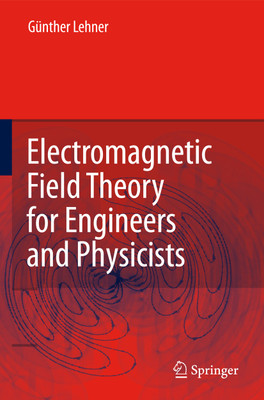Electromagnetic Field Theory for Engineers and Physicists(English, Hardcover, Lehner Lehner)
Quick Overview
Product Price Comparison
The book convinces by its excellent didactics It is very precise regarding its conception and derivations The author depicts the electromagnetic field theory and the relevant mathematical methods This established, didactically excellent textbook unifies intuitiveness with extraordinary precision of its terminology and the derivation of concepts. It was developed as manuscript to teach students in electrical engineering, and has served to do so for thousands of students over two decades. Discussed is the electromagnetic field theory and its mathematical methods. MaxwellŌĆÖs equations are presented and explained. It follows a detailed discussion of electrostatics, flux problems, magnetostatics, quasi stationary fields, and electromagnetic waves. The author presents how to apply numerical methods like finite differences, finite elements, boundary elements, image charge methods, and Monte-Carlo methods to field theory problems. He offers an outlook on fundamental issues in physics including quantum mechanics. Some of these issues concern still unanswered questions. A chapter dedicated to the theory of special relativity, which allows to simplify a number of field theory problems, complements this book. This bookŌĆÖs usefulness is not limited to engineering students, but can also be very helpful for physicists and other branches of science. Table of Contents List of Symbols 1. MaxwellŌĆÖs Equations 2. Basics of Electrostatics 3. Formal Methods of Electrostatics 4. The Stationary Current Density Field 5. Basics of Magnetostatics 6. Time Dependent Problems I (Quasi Stationary Approximation) 7. Time Dependent Problems II (Electromagnetic Waves) 8. Numerical Methods A. Appendices A.1 Electromagnetic Field Theory and Photon Rest Mass A.2 Magnetic Monopoles and MaxwellŌĆÖs Equation A.3 On the Significance of Electromagnetic Fields and Potentials (Bohm-Aharonov Effects) A.4 Li├®nard-Wiechert Potentials A.5 The Helmholtz Theorem A.6 MaxwellŌĆÖs Equations and Relativity Bibliography Generally Recommended Reading Index


